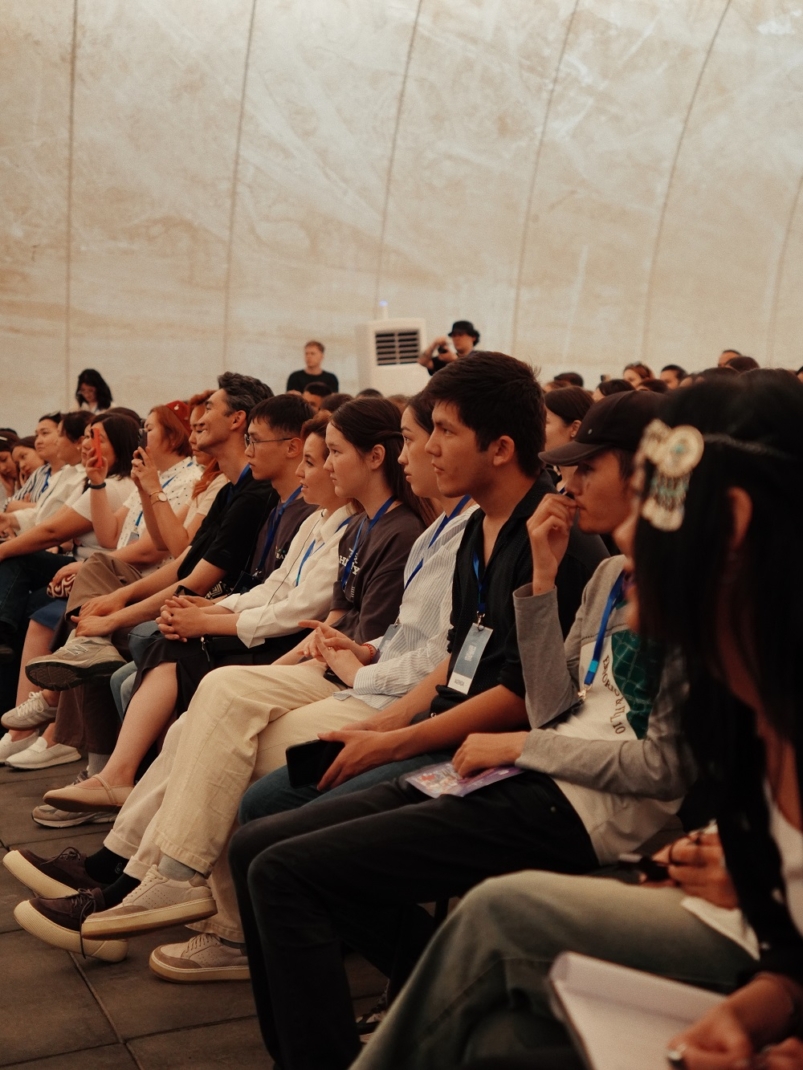On May 17, 2024, Shymkent, a town in the south of Kazakhstan, became another point on the Go Viral Festival Central Asia map. The festival traditionally consolidated all those interested in business, culture, media and technology. Young people not only from Kazakhstan, but also from Tajikistan, Turkmenistan, Kyrgyzstan and Uzbekistan take part in networking, training and sharing of ideas.
“We help future leaders of Central Asia grow,” said Michelle Yerkin, U.S. Consul General in Almaty, in her welcome speech. “I am encouraging you not to miss the opportunity to connect between yourselves and share ideas.”
Michelle Yerkin thanked the akimat of Shymkent for their support of the festival, which takes place in the campus of Miras University, IWPR for the organisation of Go Viral Festival Central Asia, and Spirit of America, by which participants from all over Central Asia gathered at the event.
Abakhon Sultonazarov, regional director of IWPR for Central Asia, said that the theme of the festival this year ‘Past. Present. Future’ opened up wide horizons of time and space to participants, letting them look into the past, enjoy the present, and be inspired by the future.
“We make every effort to improve the potential of local voices and their ability to overcome obstacles on their way to peace, democracy, freedom of speech and consolidation,” Sultonazarov explained the mission of the event. “The Go Viral Festival is a platform for networking, sharing ideas, for inspiration and creativity. It is a truly consolidating festival, which gives way to creative thinking and changes lives.”
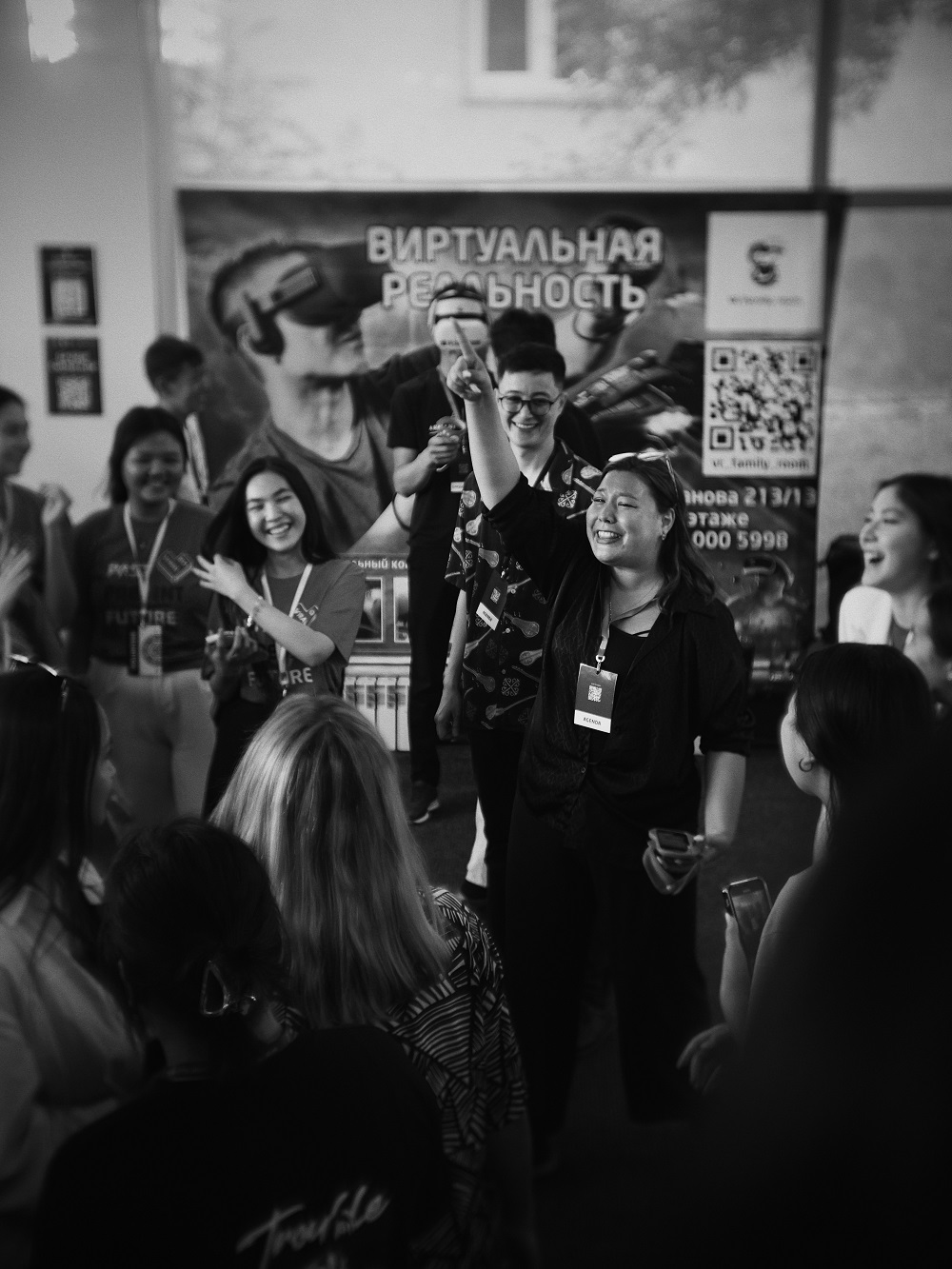
Lies, dates and artificial intelligence
Doctor Michael Shay Tema became the headliner of the event. He told how artificial intelligence changed dates, marriage and human relations. According to him, the world have a variety of technologies, by which people can use AI (artificial intelligence) to make themselves even more charming.
“AI will become part of your life, whether you want it or not,” Doctor Michael Shay Tema warned. “Machines play chess and computer games better than people do, but they cannot write music, draw pictures better because it is our domain, these are human things. Machines should not do it. But machines are already better than you in dating, love, marriage and relationships.”
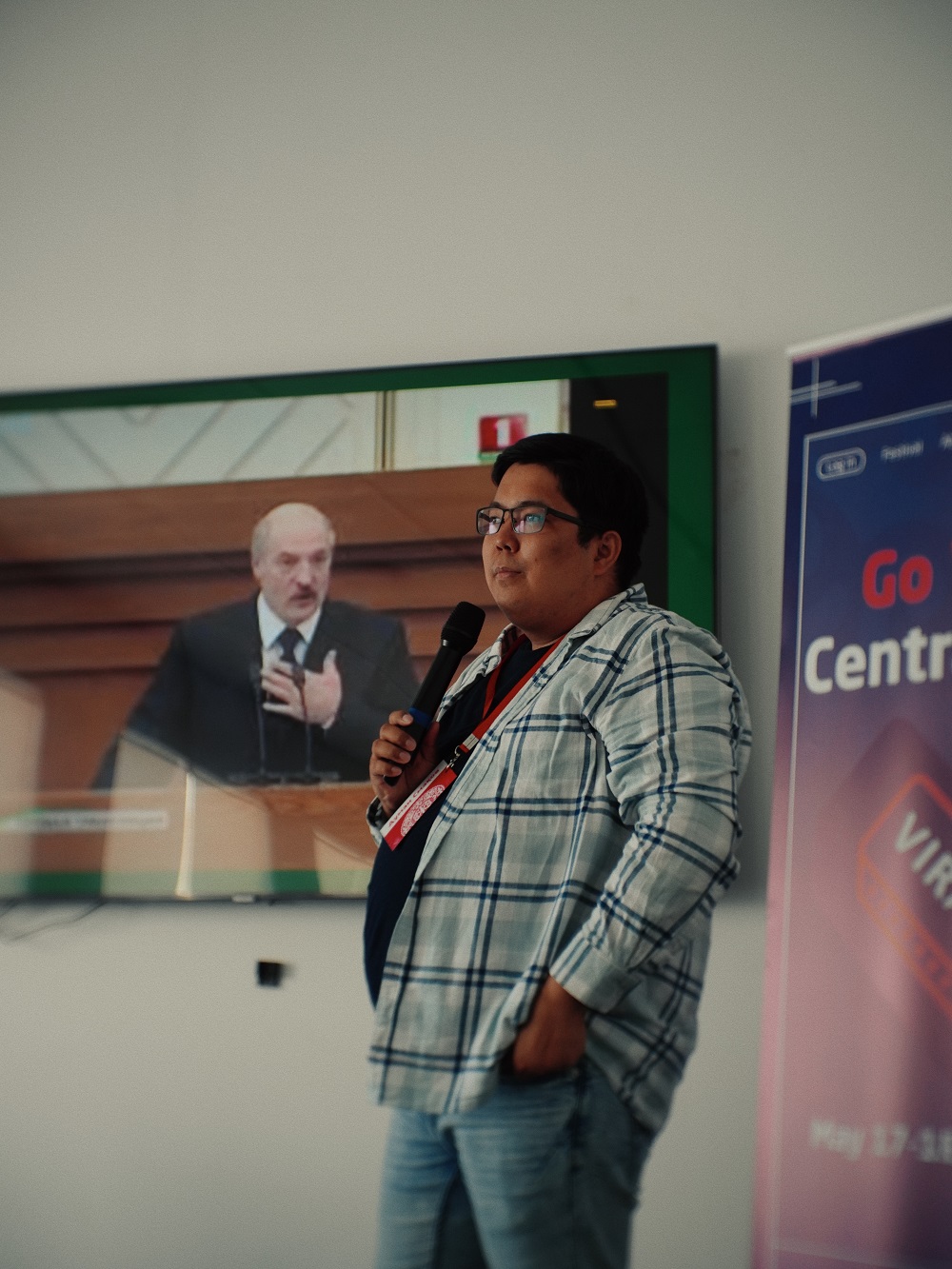
Another, alarming side of AI, was shown by Duman Smakov, editor-in-chief of Factcheck.kz. During his speech, festival participants learned that AI could lie sometimes. It happens when it is asked by a person to do so (or rather when a person sets specific frames), when AI monitors search engines and cannot identify fake and real information in the information found. Moreover, ChatGPT can ‘deceive’ when it uses outdated databases. However, people can make deepfakes, by means of AI, for example, the video with Joe Biden, U.S. President, who ‘recited’ a poem in the Kazakh language.
“Such technologies let affect the consciousness of people. They are risks for the entire humanity,” Smakov said.
But people have already created antidotes – tools that help reveal fake stories. Duman Smakov shared the tools with the event participants.
Offline and online business
How to develop one’s business in Central Asia? Experienced entrepreneurs shared their insights on this topic.
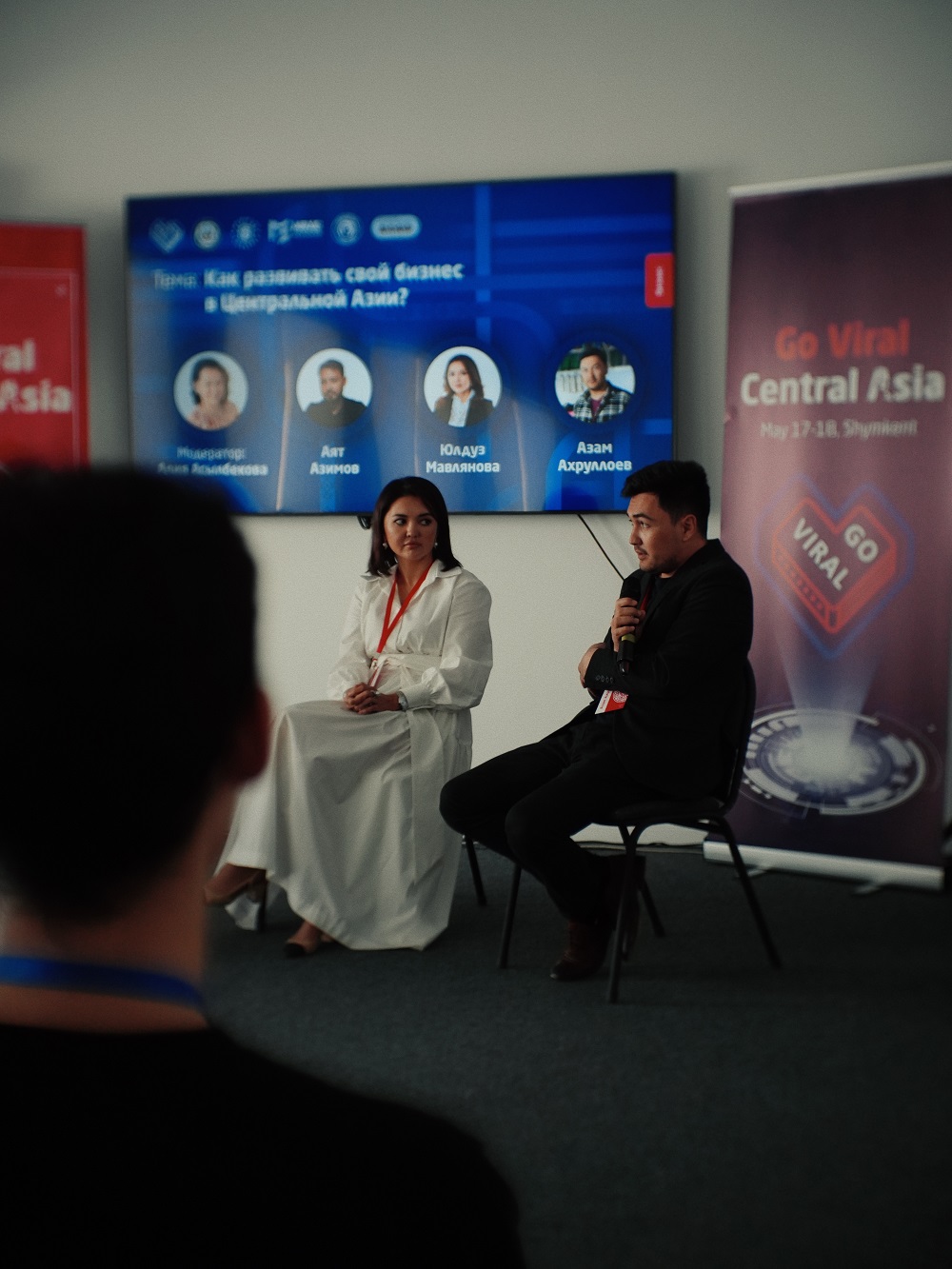
Aliya Asylbekova, founder of VanEllie bakery, said that no one opened premium bakeries before her in Kazakhstan. The innovation seemed to catch the interest of customers, but it turned out otherwise. “It was difficult to explain to our customers why prices were much above the average,” Aliya Asylbekova recalled the difficulties.
However, she is confident that the product with a twist is the key component of success. Aliya Asylbekova recommended young entrepreneurs to work over it.
Yulduz Mavlyanova has a business in Uzbekistan related to wedding and evening dresses, and her own clothing brand. According to her, this is a difficult business as imported clothing has high customs rates.
Her advice to young people is not to start a business with borrowed money, and work as assistant of successful entrepreneurs for free to gain experience.
“Business is not only about tools, but also about thinking. If you set a goal, all doors will open,” said Yulduz, who promotes the idea that there is nothing to fear.
Azam Akhrulloyev, manufacturer of shoes and leather goods, said he had to learn by himself as the market of Tajikistan was immature and there was no one to learn from.
“I faced the situation when there were not enough solvent customers in the high-value segment. So, I had to move to mass market,” Azam Akhrulloyev said about another problem.
He advised young businessmen to start from small things, not to give up and learn all the time.
Azis Toktobaev of Kyrgyzstan told about business, or rather, how content changes approach to business. Azis studied and worked in marketing projects in the United States.
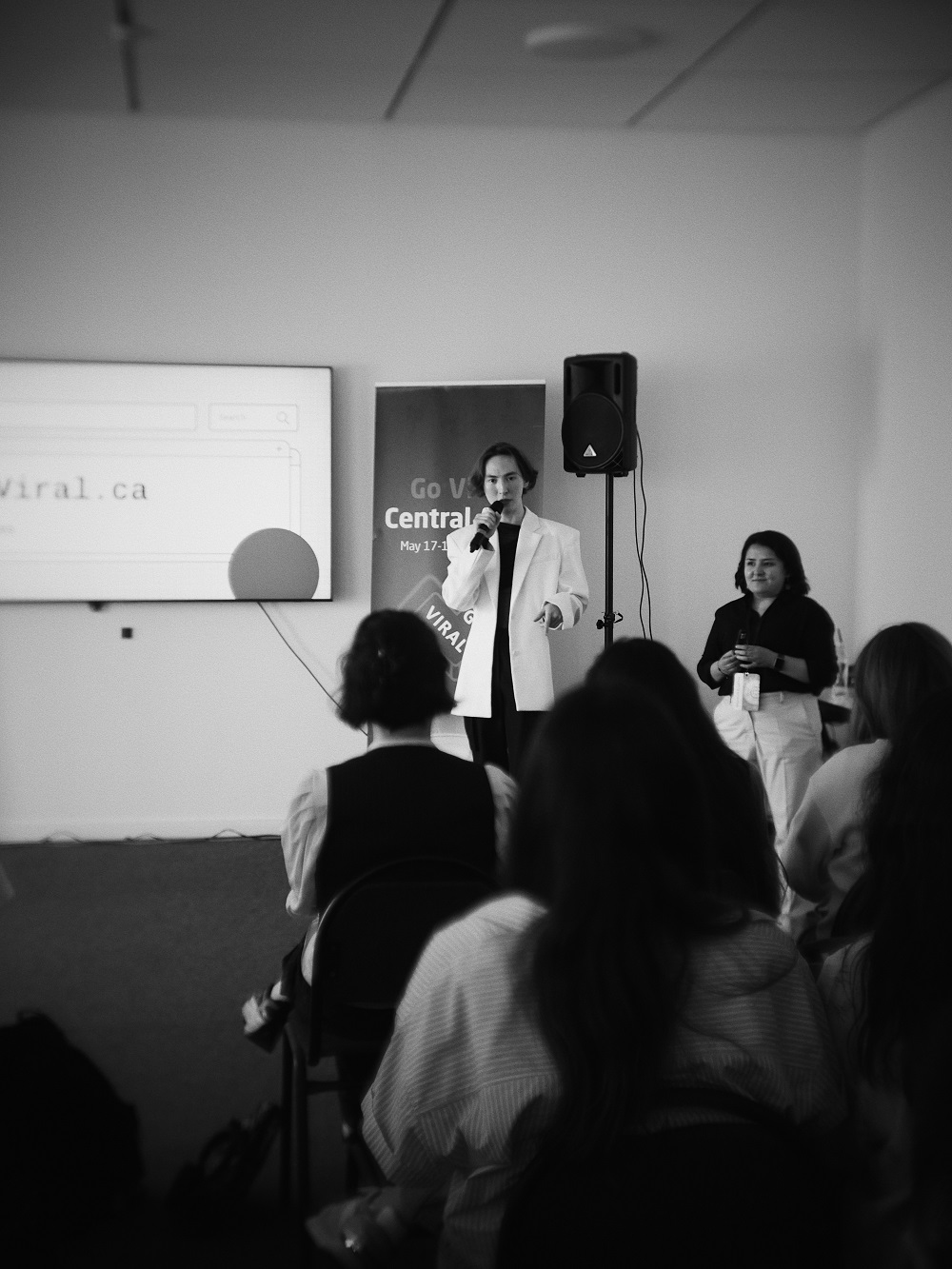
“All that you learn will explode into your projects,” Toktobaev said and proved it by his example. When he came back to Kyrgyzstan from the United States, he could reach 10 million dollars in sales of Miracare cosmetics in Central Asia due to his content marketing.
He told participants of the festival about opportunities every social media gives to entrepreneurs. “TikTok is for fast sales. Twitter is about quality sales. Instagram is for authority building,” blogger and entrepreneur said.
He advised to focus on quality, not on quantity.
“The percentage of involvement and content quality are important in social media,” Toktobaev reminded of the social media algorithms.
Social media help not only in business, they are a great tool to popularise the history. Go Viral Festival delivered a presentation about it.
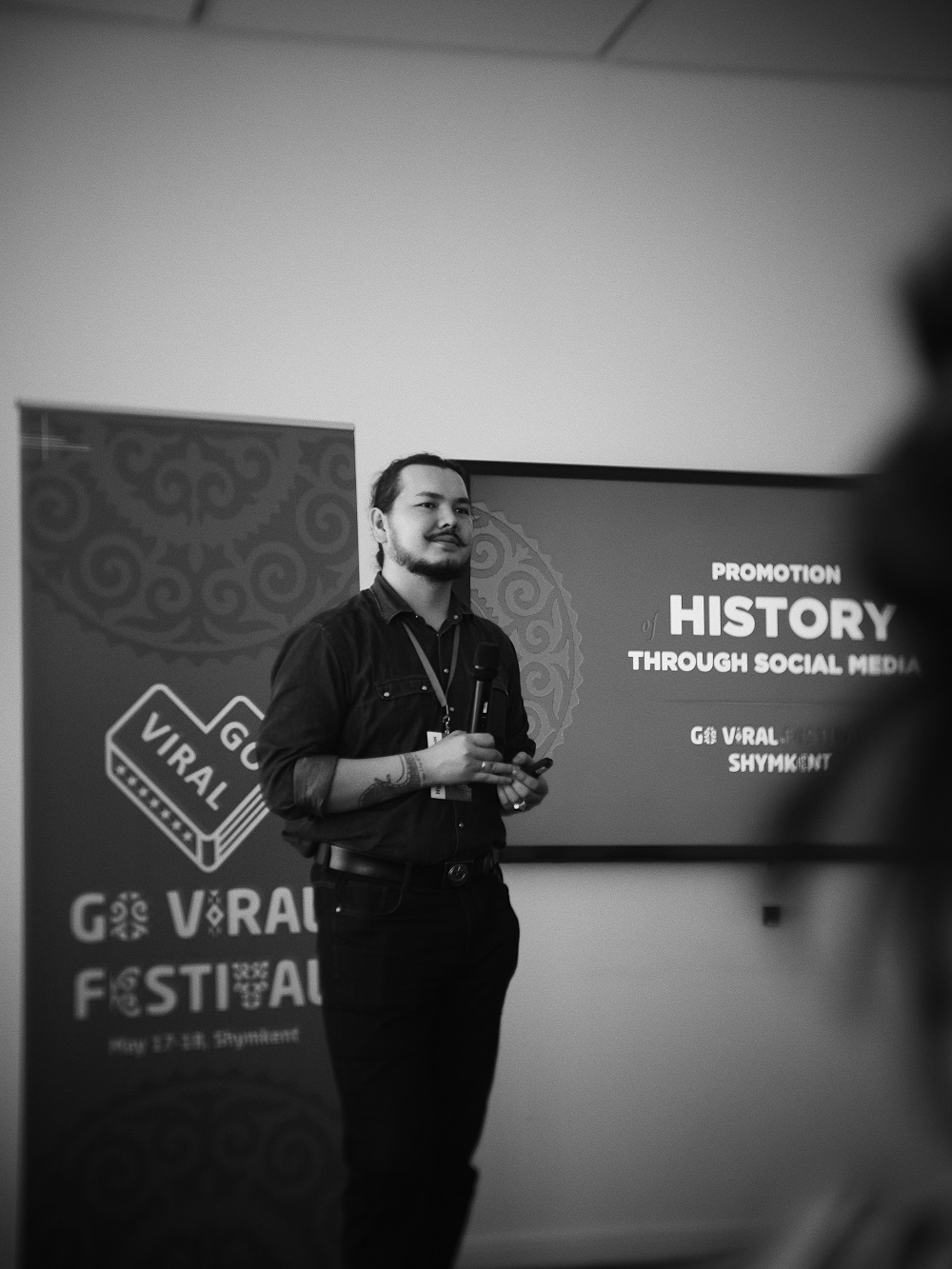
Women in art
Now it is difficult to imagine events that do not cover gender issues. Therefore, Go Viral, which always keeps abreast, held a session on representation of women in art of Central Asia.
Nasiba Karimova, illustrator and artist of Tajikistan, showed by the example of her country how art reflects time. Thus, in the Soviet period the key style of art in Tajikistan was socialist realism.
In 1935, the first art exhibition was held in Tajikistan. 12 artists, all of whom were men, took part in it. By the 1950s, female artists emerged, but they were all newcomers, like Frolikova from Russia. There were few female artists due to difficult process of education, even despite the formal gender equality.
In the post-Soviet period, the art in Tajikistan opens back up due to the civil war and loses state support. Meanwhile, artists began to go beyond the usual. For example, hard women’s work. They differed from the pictures where men depicted happy female cotton pickers.
“The art in Tajikistan is constantly developing. Female artists raise various topics that need to be talked about,” said Nasiba Karimova.
Diana Rakhmanova, artist, researcher, journalist, told the audience how activism and female artists could change the society. For example, due to feminists of Kyrgyzstan, the republic passed a law on matronymic last year. Unfortunately, it was cancelled later because patriarchate and so-called traditional values are still strong, including in the sphere of art.
“In Kyrgyzstan, ‘mastodons’ still undervalue and discriminate young female artists. Gender often dictates who will work in an organisation. I cling to a policy of professionalism on the first place and then gender,” Rakhmanova said.
Make it in 48 hours
At a session dedicated to a competition of short films, 48 Hour Film Race, speakers, including Kazakhstan playwright and producer Bagdat Annas, discussed the question of identity, spoke about who they make films for. The speakers said that films were not intended for children or adolescents, but each of them had characters of such age because films raise family issues.
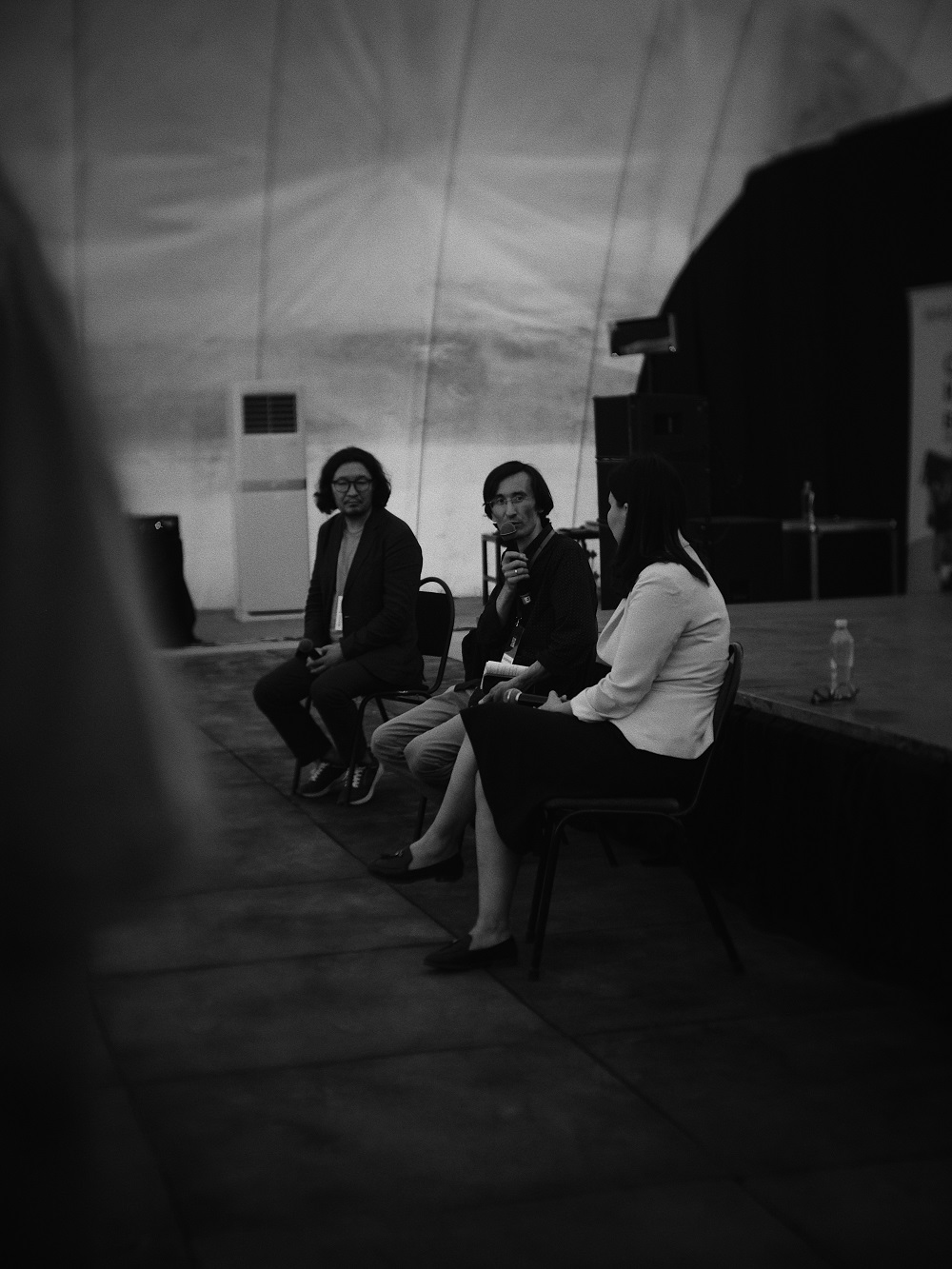
“Such issues include violence and abuse with the use of physical force, it knocks down children and adolescents morally. Usually men use force against children and women. A vivid example is Kuandyk Bishimbaev (ex-minister of economy of Kazakhstan), who was imprisoned for 24 years for murdering his wife Saltanat. Violence used by fathers destroys families from inside, their children and wives are left traumatised for the rest of their lives,” they said at the discussion.
For example, the short film ‘Asan’ shows how violence in families affects children, their future. Asan, who was brought up in a family, where father was abusive, was left traumatised and ‘broken’. He began to fight and one day he was caught by the police. Such problems break bonds between sons and fathers.
Galym Zhusipbek, researcher of Islam, did not like that the film showed fatalism.
“It is when they do not show the way out of a bad situation, as if it does not exist,” Galym Zhusipbek said. “This film shows pessimism, and our film industry does not need such things. We need a new flow of films that can help people who have problems, instead of beating them completely. Films should be positive to make people get motivation and positive emotions for further self-improvement.”
However, film makers feel confident, “It is time to eradicate those old-fashioned principles and traditions.”




